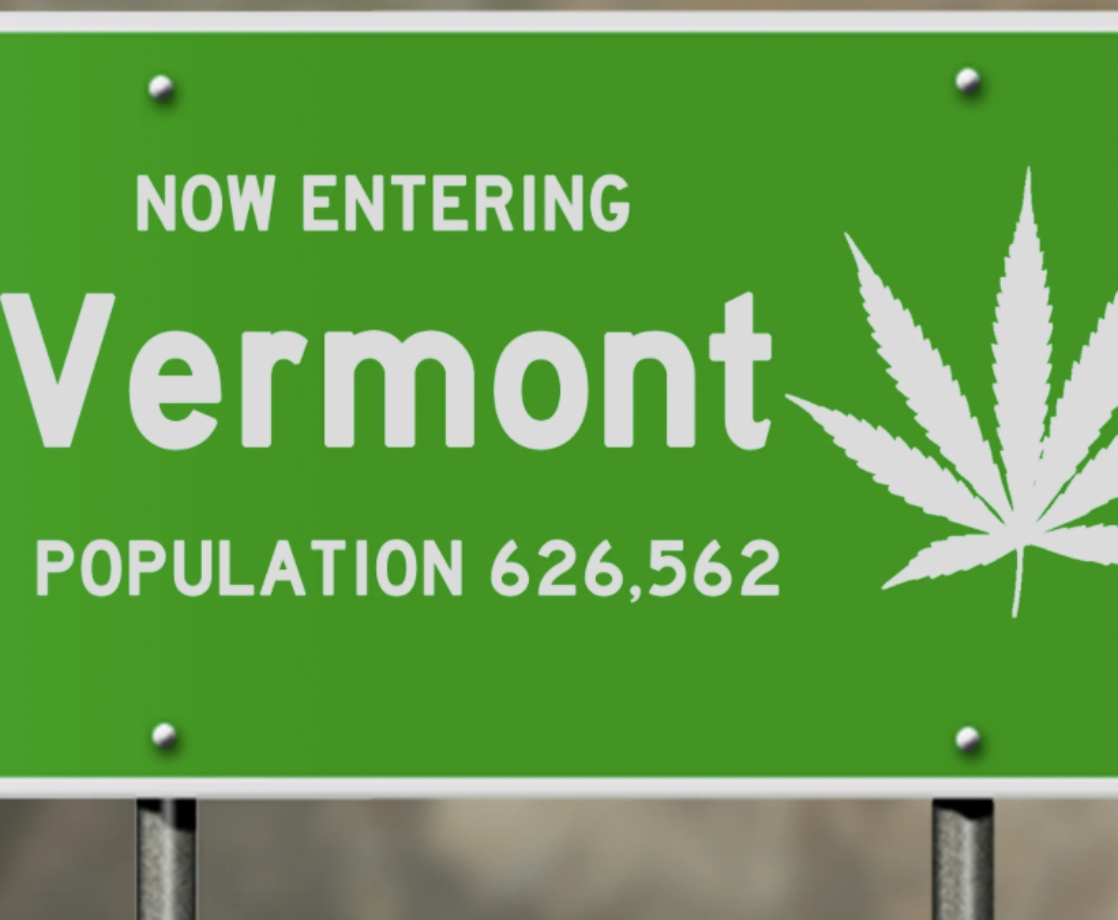Lead photo via Benjamin Thomas Wolf's Twitter
Across the country, as political candidates are gearing up for this year's midterm elections, an unprecedented number of candidates are stepping up with promises to reform their states' outdated cannabis laws. In Illinois, there are several candidates who have recently voiced support for cannabis reform, but none as boldly as Congressional candidate Benjamin Thomas Wolf. A former FBI agent and current professor, Wolf is branding himself as the "Cannabis Congressman," and has circulated a press photo of himself smoking a joint in front of an American flag painting.
Wolf is running for the 5th Congressional District of Illinois, a district of young voters who he hopes to win over with his support for cannabis and gun reform. "Not only is Illinois perfect right now, but this district is one of the youngest and most progressive in the country… [the district] really went for Bernie and the average age is 33-years-old," Wolf explained to Newsweek. "If young people vote they can have anything they want, they just need to believe."
"As a cannabis user, I think it's important we get out front and talk about it," Wolf said to the Chicago Sun-Times. "We realize that cannabis can bring billions of dollars to the state, it's medicine for millions of people around the country, it changes criminal justice reform, and personally I think it's a wonderful recreational substance as well."
Wolf is not the only candidate running for office in Illinois this year that believes that legal weed can solve some of the state's problems. Practically every Democratic candidate running for governor or attorney general this year has expressed some degree of support for cannabis reform. Gubernatorial candidate Daniel Bliss is actively co-sponsoring legislation to legalize cannabis in the state, arguing that legalization will put an end to racially disproportionate enforcement of prohibition laws. Other candidates argue that legal pot tax revenue will help the state's financial woes or ease the burden on state law enforcement and prisons.
Unsurprisingly, the majority of Republican candidates running for these offices are opposed to legalization. Incumbent Governor Bruce Rauner recommended that the state wait to see how legalization plays out in other canna-legal states before making a decision on the issue. Gubernatorial candidate Jeanne Ives argued that cannabis tax revenue will not be enough to resolve the state's budget problems and cited statistics concerning increased cannabis-related traffic accidents. And Gary Grasso, Republican candidate for attorney general, is still arguing the old "gateway drug" myth.
This March, Illinois voters themselves will have a chance to weigh in on the debate over cannabis legalization in the Prairie State. A so-called "Reeferendum" is being held on this year's spring primary election ballot, asking voters if they support adult-use legalization of cannabis throughout the state. The referendum is non-binding, so a "yes" vote will not immediately make pot legal in the state. It would, however, signal to state legislators that their constituents are in favor of making Illinois the tenth canna-legal state in the U.S.











